Description
Qu’est-ce que le Sencha?
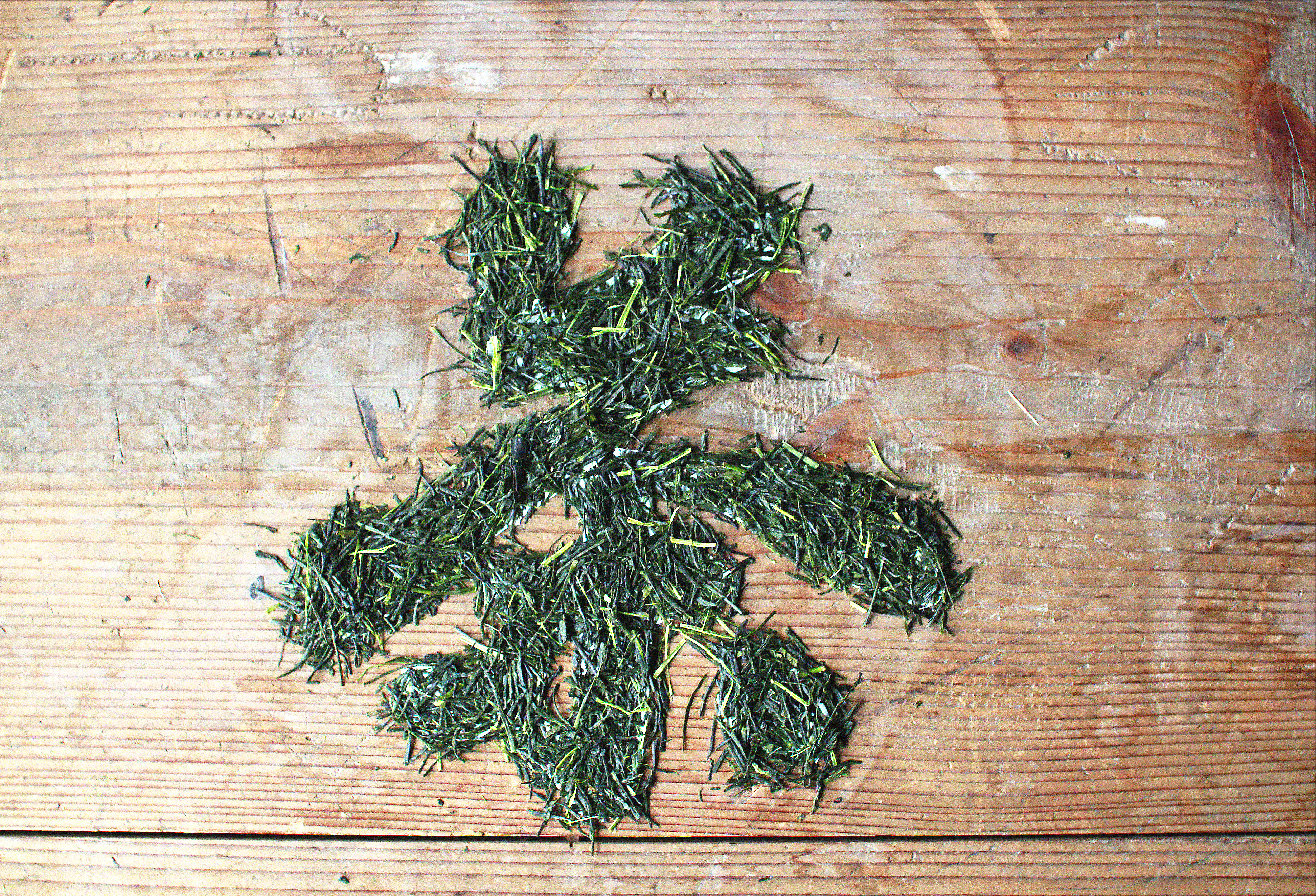
Le Sencha (煎茶), ou littéralement «thé infusé», fût inventé en 1835 et est aujourd’hui le type de thé le plus courant et populaire au Japon. Représentant plus de 80% de tout le thé vert du pays, il est unique par sa couleur émeraude distinctive et son goût végétal herbacé.
Après la récolte, les feuilles de thé sont immédiatement passées à la vapeur afin de stopper le processus d’oxydation. Cette étape cruciale permet de préserver tous les arômes frais et printaniers de la feuille, faisant du Sencha le thé symbole de printemps par excellence pour les Japonais. Les feuilles subissent ensuite tout un processus de roulages et de séchage, pour résulter en un magnifique thé de fines aiguilles.
Profil de l’agriculteur
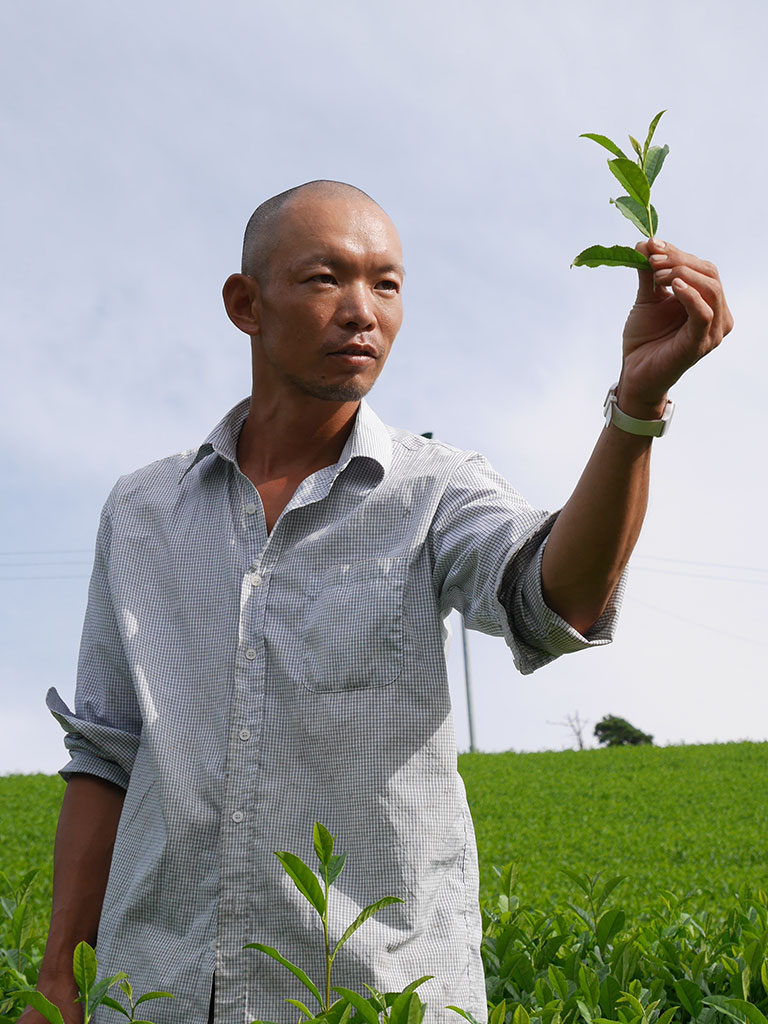
Akihiro Kita dit « Akky » est le président et l’exploitant agricole principal d’Obubu Tea Farm.
La création d’Obubu Tea est à l’origine de son désir de rendre le thé japonais accessible à tous !
Lors de ses années à l’université, Akky s’est fait engager en tant qu’employé saisonnier dans le village de thé de Wazuka et … ce fût le coup de foudre!
Il prit alors la décision de quitter l’université pour consacrer tout son temps à maitriser l’art de la culture du thé en devenant lui-même producteur.
Prenant conscience de l’envie et du besoin des agriculteurs indépendants tel que lui de partager la joie que procure une simple tasse de thé, il voyage depuis tous les ans durant la période hivernale pour diffuser sa passion pour le thé japonais avec des gens du monde entier.
Méthode de fabrication et guide d’infusion


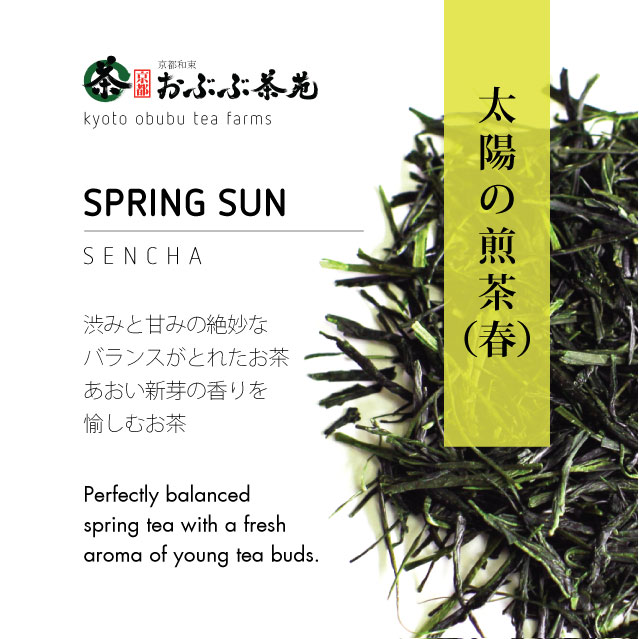
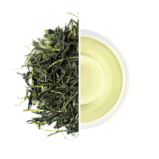
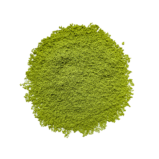
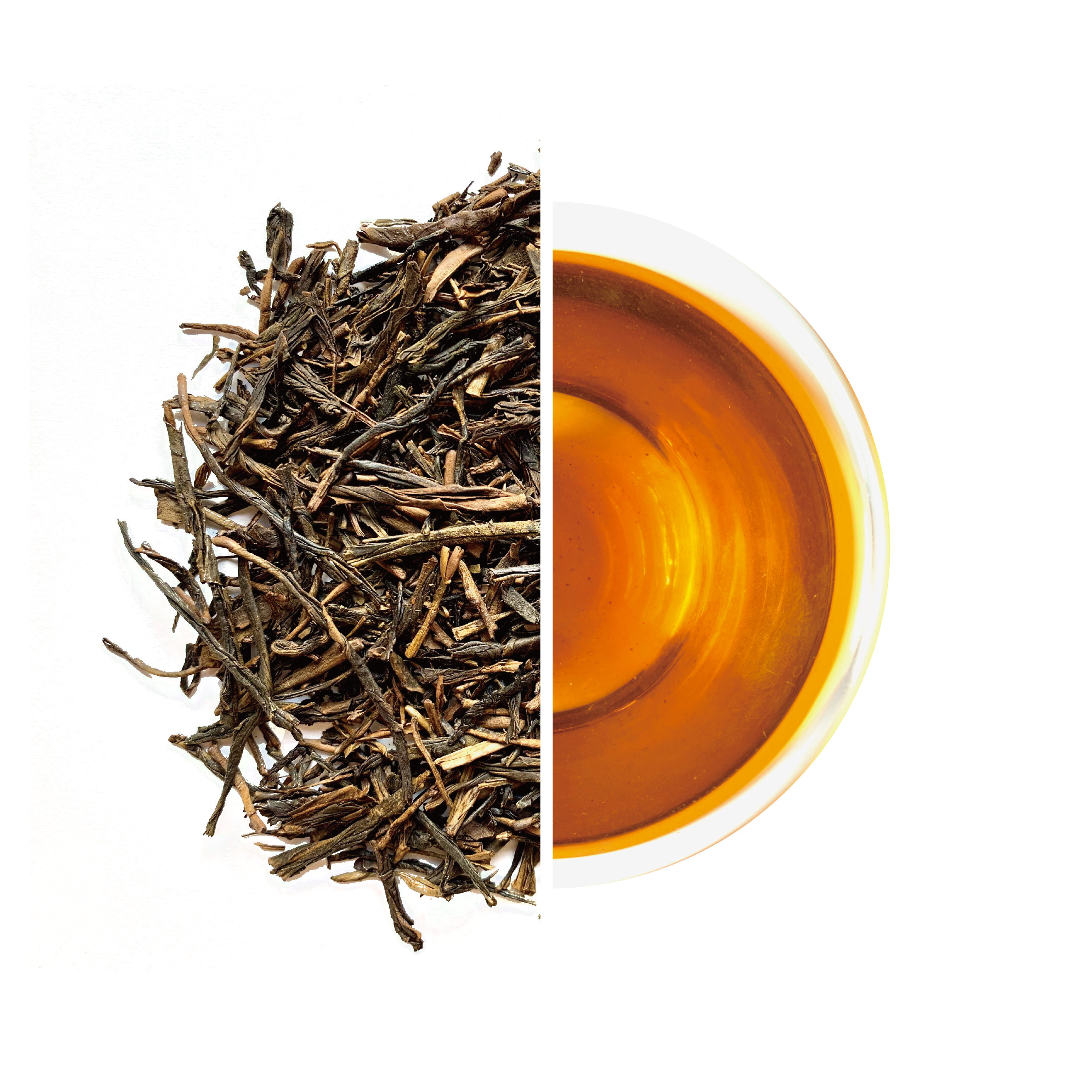
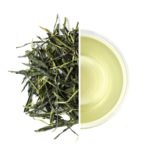
Obubu Tea –
Reviews by tea professionals and enthusiasts:
« I feel like I love this tea more and more each time I brew it. This sencha has some body, and a brothyness, that makes me really want to make chazuke from it some time. The spent leaves already make a good salad » – pkmnnnerdfighter, 2016
The dry leaf aroma is sharp, fresh-cut green, lightly marine with woody notes and a floral hint.
« The pale green infusion has a light fresh green and nutty aroma with a taste that is sweetly green with notes of macadamia nut and oats, a hint of umami, and a clean green finish » – Heather Porter, 2016
« On the palate this is predominantly honey with some nutty notes. There’s the characteristic vegetal notes of sencha but they are not as pronounced as they usually are – they mostly pop up in the finish, as a bit of a green tang. This is very sweet and really delicious. If I take a big gulp, there’s a brothy quality at the back of my throat and peas on the finish, but small sips don’t carry those notes » – Anlina,2015
« The steeped leaves deepened to a robust spinach scent. The liquor was a pale iridescent jade. The initial sip was fantastic. This is truly a spring fiery brew. The flavor is light and floral with just the right amount of vegetal and umami. This brew carries a sweet honey undertone and is deeply refreshing. The brew became deeper and more full of darker tones as the steeps increased » – Haveteawilltravel, 2015
« A warm juniper and fresh cut grass scent shines through. Flavour is mild, sweet and very fresh with grass and floral tones with some lightly toasted hay towards the after taste. Particularly sweetpea and mild but fresh seaweed » – Kayleigh, 2014
« I will say, this absolutely makes me think of Spring, so the name is perfect! It has a nice sweetness as well as a touch of astringency that makes me want to drink more. There’s a strong and surprising hay-like flavor that reminds me of white tea a bit, along with a little bit of bitterness that balances the sweetness nicely. I can taste light vegetal and grass notes, but they’re much more subtle than most sencha. There’s a subtle fruity note here, something mild and sweet like apple. Overall, quite tasty! – » Cameron, 2014
“It has a beautifully balanced taste and is simply very good!” – by Caj Room, 2013 (translated from Czech)
“Obubu claims a zen-like mistiness for this tea, and however normally I am against such descriptions, I cannot but agree. The tea is not for a regular daily drinking, but for a quiet enjoyment and relaxation. The taste is neither too strong nor too weak, with enough bitterness and sweetness to satisfy sencha lovers” – by Cajnekronike, 2013 (translated from Croatian)
“As to Obubu i can say one thing; Sencha of the spring was incredible, it was the first Sample of the 17 i ordered and i have never drunk a Sencha like this before. You can totally taste the spring, it is light, tender and really fresh, especially when you drink it cold it gives you a fresh citrus taste. The leaves are even edibl . Even if you let the tea steep longer this Sencha doesnt really get bitter.” by VanFersen, 2013 (translated from German)
“When I think of a sencha, this is what I want. It’s medium-strong flavor, great balance of savory, sweet, and astringency. Perfect iced and hot.” – by Mel, 2011
“It smells really well. A really sweet cup, nice and light.” – by Healthy Professionals Food Blog , 2011 (video review)
“One of the best green teas I’ve ever tasted. I highly recommend this tea for it’s sweet, subtle flavor.”- by The Tea Show, 2011
“I love this tea. I make it the way they recommend, with lots of leaf and boiling water for multiple VERY short steeps. This brings out the bitterness that I love in a Japanese tea in the first infusion; subsequent cups are sweet and creamy, a little floral. It cold-brews beautifully too.” – by Joie De Tea, 2011
“Delicious! This tea has a grassy, earthen smell in the bag, and a grassy, floral sent once brewed. The color is a nice bright green and the flavor is a near perfect balance of sweetness and bitterness (the good kind). Obubu doesn’t disappoint!” – by Ken Durocher, 2010